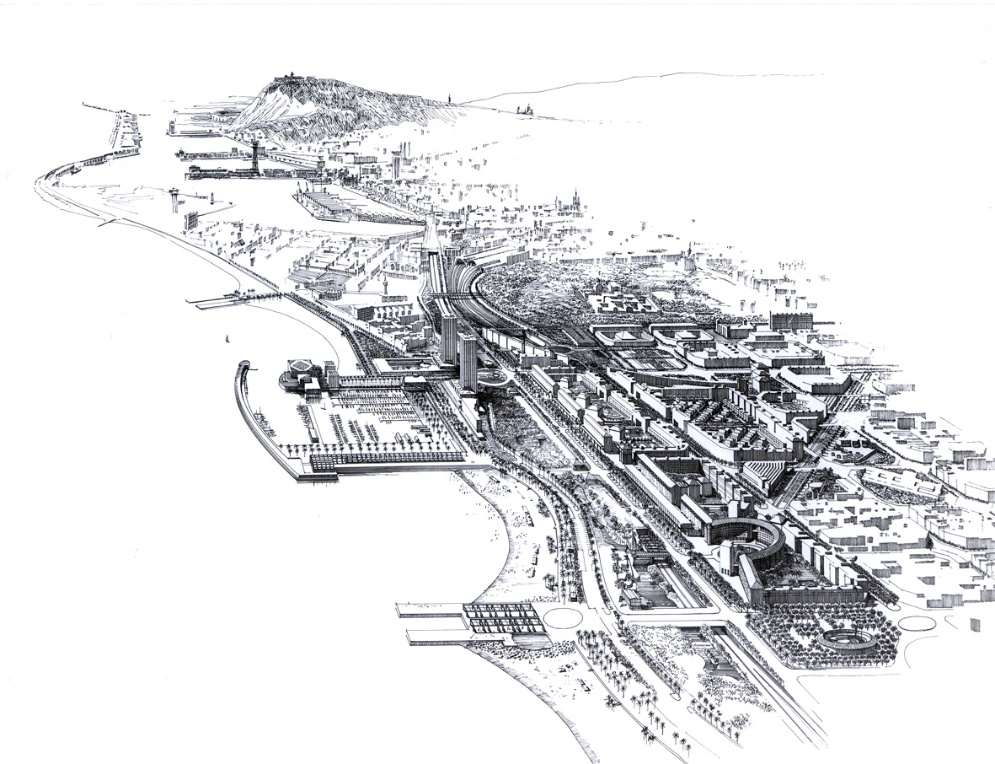The Barcelona model: an original formula? From “reconstruction” to strategic urban projects (1979-2004)
Javier Monclús

Image: Urban design project for the seafront, by the architects and authors of the Olympic Village: Martorell, Bohigas, and Mackay
Abstract
The experience of Barcelona from the start of the 1980s up until the end of the 1990s has been widely described in academic and professional media alike. However, it is not easy to find global interpretations from an urban planning perspective. Some authors refer to the ‘Barcelona model’, focusing on design issues and the quality of public urban spaces. Others highlight the capacity to manage unique flagship events such as the 1992 Olympic Games, converting them into levers and strategic instruments of urban renewal and regeneration. Both versions tend to consider the Barcelona model as something singular, something almost unique in the panorama of international urbanism. To what extent can the Barcelona model, in fact, be considered as a unique phenomenon? Starting out from the diversity of the interpretations concerning the changes produced in the international planning culture and, at the same time, an approach closer to the processes and strategies developed in Barcelona during this period, this paper seeks to analyse the so-called Barcelona model, in order to reach a better understanding of its connections, the parallels and its specific characteristics compared with experiences in other cities.
Monclús, J. “The Barcelona model: an original formula? From “reconstruction” to strategic urban projects (1979-2004).” Planning Perspectives, no. 18 (4) (2003): 399-421.

